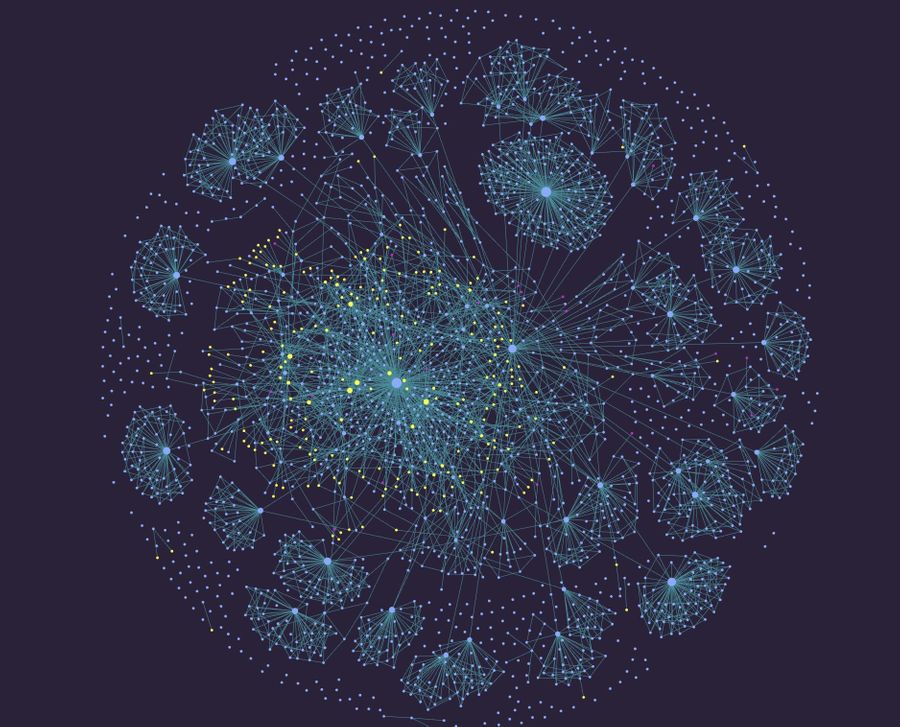In a tool like Obsidian, direct, manually created links are the best way to connect your thinking across notes. This is the default behaviour of the Zettelkasten, and I appreciate the emphasis [https://zettelkasten.de/posts/backlinks-are-bad-links/] it's given by the folks at Zettelkasten.de [https://zettelkasten.de]. However, I'm also not against using other forms of linking notes together. There's value to being able to see connections across topics, and for that use case, tags work well. Bu…
Yeah, I don't normally link to Wikipedia here. But I came across this recently when looking something up and it really sucked me in. Having spent 25+ years of my life reading this series, some of the books 5–10 times, I consider myself to have a fairly intimate knowledge of the story. But the Wikipedia entry introduced some concepts that were new to me right from the start: > The series is set in an unnamed world that, due to the cyclical nature of time as depicted in the series, is simultaneo…
Here's a a topic that make me feel old. Despite the title (we're likely nowhere near the "last word" on Bitcoin), this article challenges a few of the ideas I've had about cryptocurrencies. I've long held the view that anything related to blockchain technology is negative — the environmental impact is simply too high. But I confess I barely understand how this stuff all works. Nic Carter makes a few points that challenge the common assumptions and got me thinking about this once more: > Anothe…
I enjoyed this article from Zakk Fleischmann. In it, he talks about how spending $5 for a Starbucks coffee is a "leak" and how this trickles into other areas of life. > Poker players have this concept called a leak: a blind spot that causes you to consistently make an error. As an example, a very common rookie leak is to only raise (put in more money) when you have a good hand. You can see why this would be problematic: after a few rounds, an observant opponent will be able to tell when you hav…
As the year has rolled along and the days are starting to get a little longer up here in the north, I've been enjoying my use of Obsidian more and more. As I mentioned in the past about Roam, these tools are additive. The more you use them, the more valuable they feel. This isn't by accident — you have to make meaningful connections between your notes (as I mentioned here). But as you make those connections, you experience the feeling of building. Your base of knowledge matures a little more.…
William Van Hecke has an interesting idea for how to use his time. Based on a concept he read in a Neal Stephenson novel, he organizes his time in ten day periods: > Time is divided into ten-day decades. (We commonly use the word “decade” to mean ten years, nowadays, but prior to the 16th century, it could mean any collection of ten things, including days.) I love my desynchronized rhythms; the 10-day decade and the 7-day week create a healthy polymeter that drifts in and out of sync over time.…
For the last several years, I've taken part in the Goodreads reading challenge [https://www.goodreads.com/challenges/show/11650-2021-reading-challenge]. I tend to come up 3–5 books short each year, but I'm happy overall with how much I've been reading. However, I'm not crazy about what I've done with the books I've read. Often, I've done very little beyond reading the words on the page. I made highlights and perhaps a short blurb somewhere in my notes. But as this was all before I had…
Joel Hooks shared this post about writing more and worrying less about the polish. He mentions how shifting from thinking about his writing and site as a blog to a digital garden helped him to write more: > Seriously. The idea of a "blog" needs to get over itself. Everybody is treating writing as a "content marketing strategy" and using it to "build a personal brand" which leads to the fundamental flawed idea that everything you post has to be polished to perfection and ready to be consumed. I…
